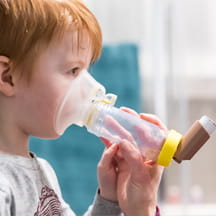The National Institutes of Health (NIH) awarded $3.2 million to pediatric genetic expert Melissa Wasserstein, M.D., chief of Pediatric Genetic Medicine at The Children’s Hospital at Montefiore, to conduct the most expansive consented pilot newborn screening study in the country, known as ScreenPlus.
Why is this work important?
Rare diseases that are serious and even life-threatening can be difficult to diagnose, and often families go from specialist to specialist trying to find answers. Newborn screening enables us to diagnose problems early and connect families with medical experts who can start treatment as soon as possible, leading to better health outcomes.
How will you expand standard screening?
Newborn babies are currently screened for between 30 to 50 disorders, depending on their state. We will offer parents at eight New York hospitals the option to have their babies screened for an additional 13 disorders. We will screen samples from 175,000 ethnically diverse babies from across New York at the state’s public health laboratory. The results of the study will provide critical information about whether these disorders should be added to routine newborn screening panels nationwide. This is the ideal way to evaluate if the clinical benefit of screening for additional diseases outweighs the risks.
What are the implications for treating disorders in the future?
By identifying babies with complex disorders as early as possible, we can provide FDA-approved treatments or connect them to clinical trials that offer promising treatments. We believe this work will add to the scientific body of knowledge about newborn screening but also, importantly, will offer hope to families for their child’s future.
How will you involve parents?
As the technical ability to screen newborns grows exponentially, new questions have arisen, such as whether it is beneficial to screen newborns for diseases that might not present until adulthood. We will include thousands of parents in these discussions using a series of surveys and qualitative interviews to provide invaluable information to doctors and scientists about the affect newborn screening has on families. Ultimately, it will ensure that parents’ opinions are incorporated into the development of ethically sensitive newborn screening policies.


